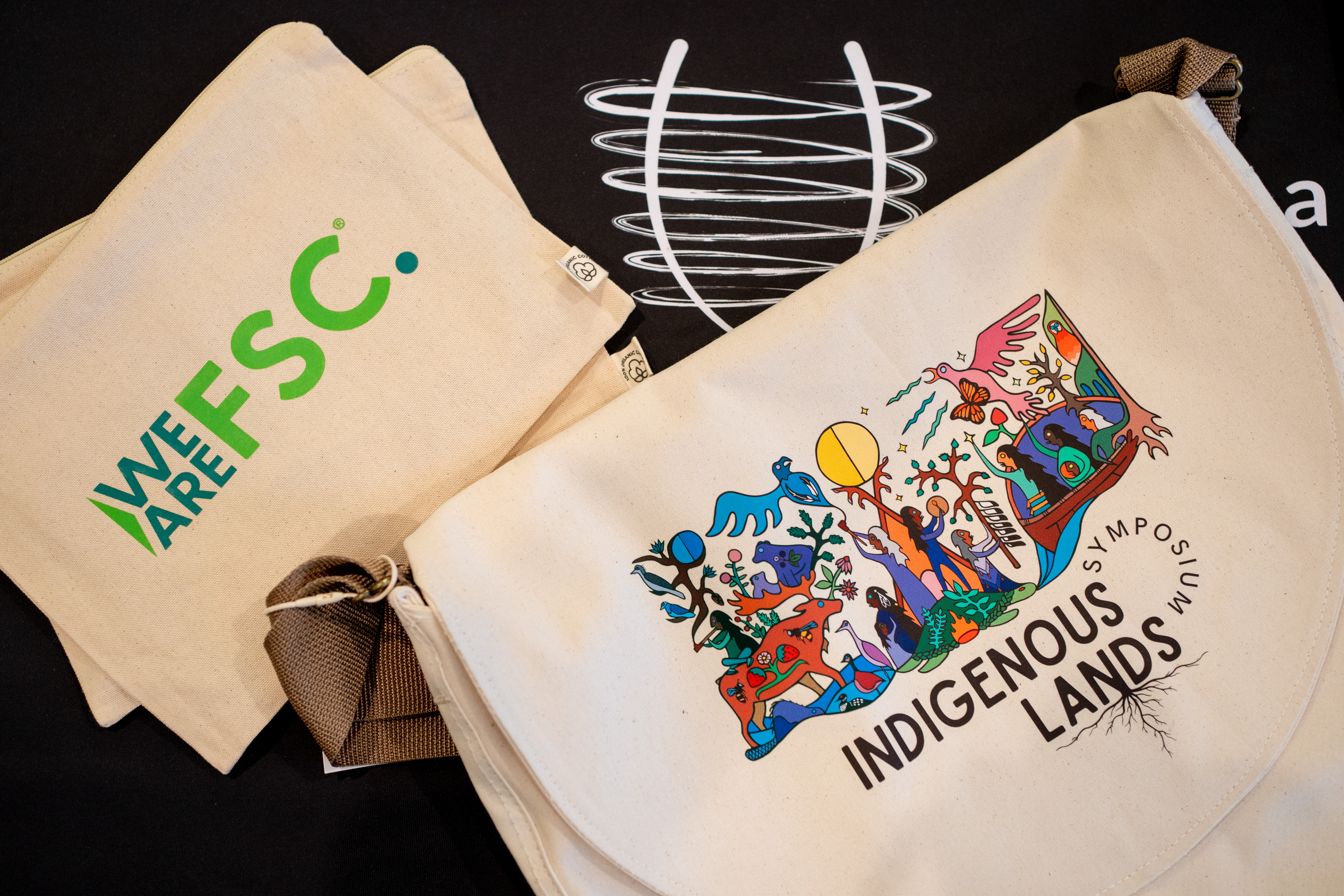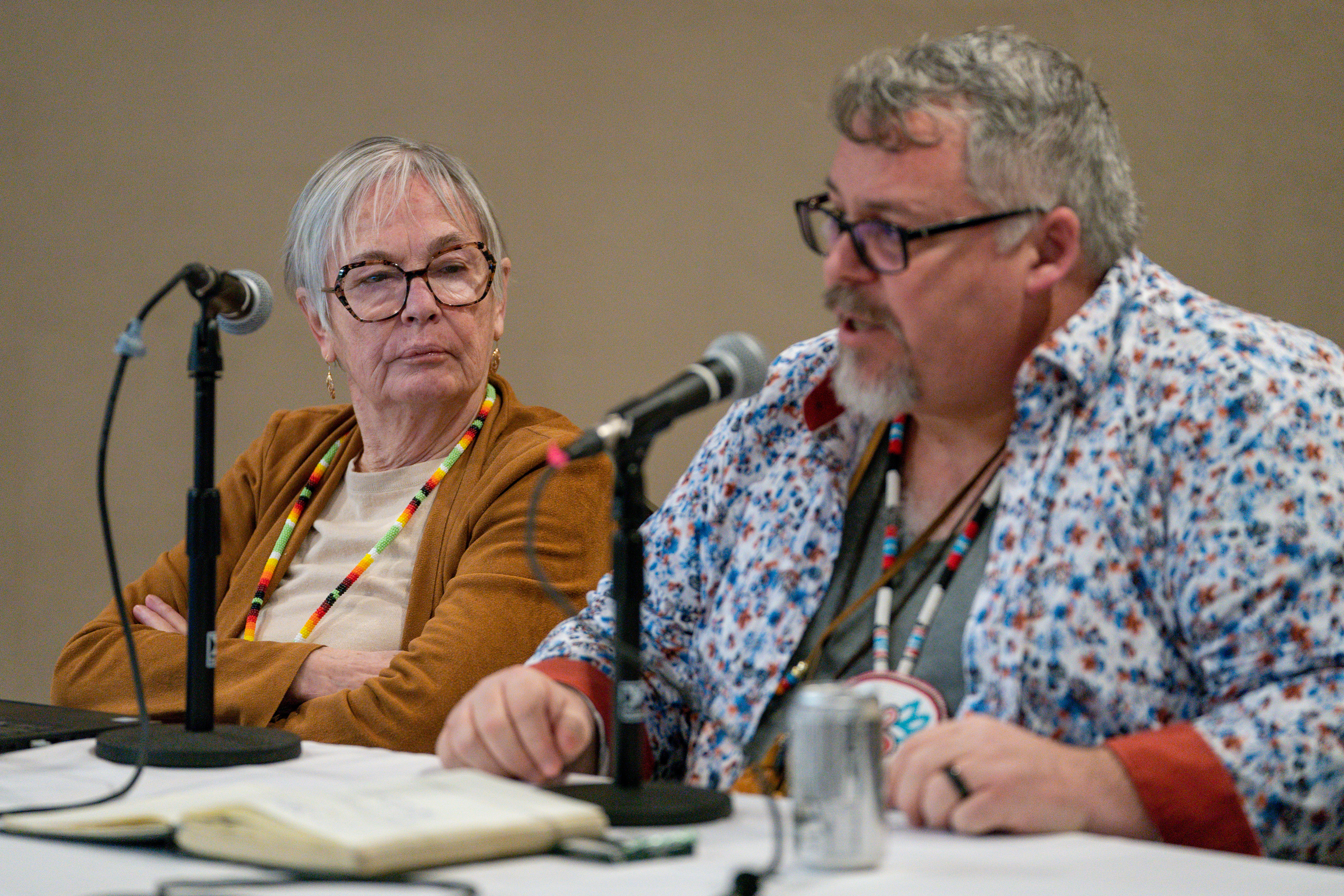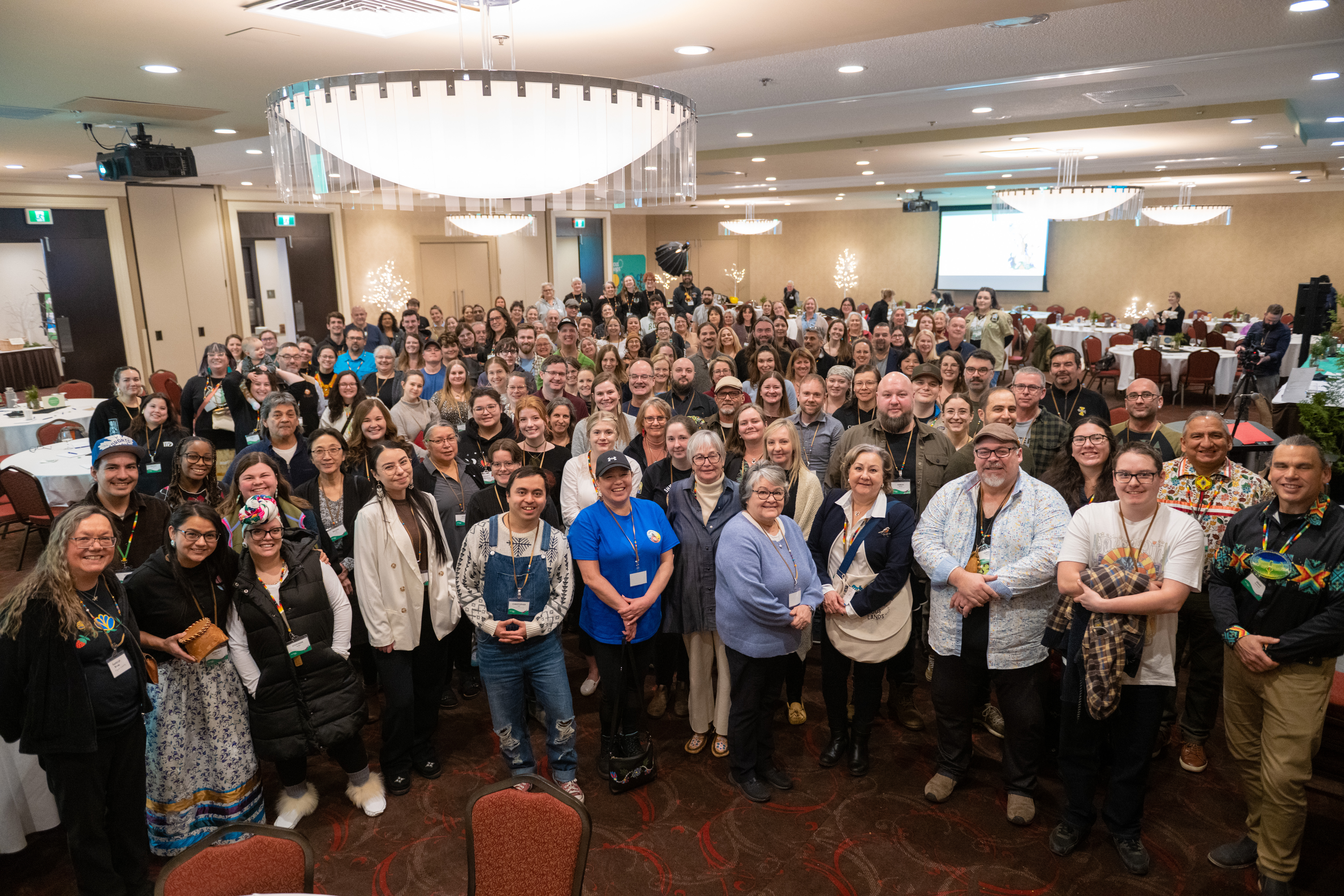This year’s Indigenous Lands Symposium, hosted by Wahkohtowin Development in Bawating/Sault Ste. Marie, Ontario, brought together Indigenous communities and First Nations, knowledge holders, and partners from environmental non-governmental organizations (ENGOs), industry, and government. FSC Canada was honoured to attend — listening and learning, presenting the unique benefits of FSC certification for Indigenous Peoples, and gathering invaluable feedback on how FSC upholds the principles of Free, Prior, and Informed Consent (FPIC).
Opening remarks by Dean Sayers and FSC Canada board member Lorraine Rekmans reminded us of the unique and vital role Indigenous Peoples’ hold in the care and management of forests. Their knowledge, passed down through generations, offers thousands of years of ecological insight and teachings rooted in listening to and respecting the land. This wisdom is not just historical — it is essential for shaping the future of conservation.
Ahead of the symposium, the FSC Canada team hosted a leadership discussion with key Indigenous resource managers to better understand their priorities, the challenges they face, and the solutions they are implementing on the ground. The session fostered open and honest dialogue, with resource managers sharing how Indigenous knowledge systems inform their work in ecosystem conservation, climate resilience, and carbon-positive forest management. Discussions highlighted the critical role of First Nations Guardian programs in protecting ecosystems and advancing biodiversity, but also underscored the significant barriers posed by inadequate funding. Through this exchange, the FSC Canada team gained a deeper understanding of how our management planning standards and monitoring efforts can better support Indigenous-led conservation and forest management leadership.

(Photo by: Wolf Eye Productions)
The forum, spanning five days, covered topics crucial to the future of sustainable forest management, including:
- Inherent jurisdiction, and affirming Indigenous leadership in land management by upholding traditional laws and practices.
- Incorporating Indigenous indicators of forest health into forest management planning, creating more holistic and effective strategies.
- Sustainable economic models, such as carbon and biodiversity financing as powerful pathways to empower Indigenous-led conservation.
- The role of Indigenous Protected and Conserved Areas (IPCAs), including their important contribution to achieving 30x30 conservation goals and preserving both cultural and environmental integrity.
- The distinction between consent and permission in the context of FPIC, emphasizing the importance of self-determination.
FSC Canada’s session, The Unique Benefits of FSC Certification for Indigenous Peoples, explored how FSC certification goes beyond compliance — embedding FPIC into forest management processes and ensuring meaningful participation from all impacted communities. The session showcased how FSC Canada’s Indigenous Chamber guides policies to align with the UN Declaration on the Rights of Indigenous Peoples (UNDRIP), fostering collaboration and accountability. A powerful example came from Wahkohtowin's forest management model, demonstrating how FSC certification can be a tool for both ecological integrity and community prosperity. The session also highlighted that more work is needed to better support the implementation of FSC standards and to understand how certification meaningfully impacts communities.

(Photo above: Peggy Smith and David Flood speak during 'The Unique Benefits of FSC Certification for Indigenous Peoples' session. Photo by: Wolf Eye Productions)
Cultural traditions and ceremonies grounded the event, with daily sunrise ceremonies, birch basket making, woodland art classes, bear bundle teachings, a round dance, and a concluding pipe ceremony. These moments of connection reinforced the central message shared by elders and experts: the importance of spending time on the land, living in harmony with nature, and honouring the original responsibility to care for the land and all its relatives.
The FSC Canada team is deeply grateful for the opportunity to connect with Indigenous leaders, youth, and knowledge holders. These conversations offered critical insights into how we can continue to strengthen our relationships and engagement with Indigenous communities, ensuring our work remains rooted in respect, collaboration, and shared stewardship.

(Photo by: Wolf Eye Productions)
The lessons learned at the 2025 Indigenous Lands Symposium will continue to inform FSC’s ongoing efforts to support Indigenous-led initiatives, uphold FPIC, and contribute meaningfully to conservation and sustainable forest management in Canada.
We look forward to participating in more conversations and working alongside Indigenous communities to build a future where forests thrive, and relationships with the land are honoured and protected.

